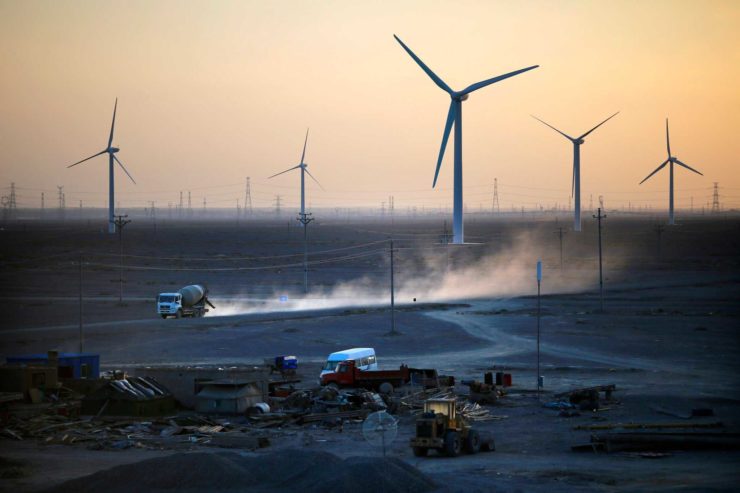
In 1991, Saudi Arabia was one of the first countries to recognize Uzbekistan as a new independent Central Asian republic, marking a significant milestone in the modern history of relations between the two nations. During the 1990s and 2010s, the two countries cooperated on several occasions. One notable example is Uzbekistan’s active participation in so-called mosque diplomacy, which involved the construction of religious sites in several states with large Muslim communities, funded by Saudi Arabia. However, economic and trade relations have often taken a backseat to cultural, religious, and humanitarian interactions. But the situation has changed rapidly since the late 2010s and early 2020s, as Central Asia has emerged as a dynamically developing and integrating region of the world that could become the crossroads of the continent’s major transit routes.
On November 27, 2023, Uzbekistan President Shavkat Mirziyoyev participated in the launch ceremony of two major projects implemented in the country by investors from the Kingdom of Saudi Arabia. These are the construction of a 1,500 megawatt combined cycle power plant in the Syrdarya region, which began in 2020, and the construction of Uzbekistan’s first enterprise for the production of green hydrogen near Tashkent.
The contractor company reports that it is currently implementing $7.5 billion worth of energy projects in Uzbekistan, accounting for a significant share of Saudi Arabia’s projects in the country. These projects aim to reduce Uzbekistan’s dependence on electricity from neighboring republics’ hydropower plants, specifically Tajikistan and Kyrgyzstan, which account for a quarter of all external supplies. These plants use water resources that are in demand in Uzbekistan for power generation needs. Additionally, the projects aim to optimize Uzbek gas supplies to profitable markets by reducing the consumption of gas in the country’s energy sector. The combined cycle power plant project mentioned above aligns with the second long-term goal, as its construction utilizes technology that ensures high efficiency and significant energy savings. Hydrogen production aims to meet the needs of the country’s agriculture for mineral fertilizers, which are manufactured using this resource. It should be noted that the Uzbek authorities are cooperating with SABIC, a company based in Saudi Arabia, in this sector.
The ceremony occurred during the meeting between the President of the Republic and the Minister of Investment of Saudi Arabia on November 27, 2023. The successful partnership between the two countries has been extended to new sectors such as information technology, pharmaceuticals, transportation, and agriculture through a package of agreements worth $12 billion.
These projects are just a portion of the initiatives implemented by Saudi companies and foundations in the country. Last year, during the official visit of the President of Uzbekistan to Riyadh on August 17-18, an agreement was signed between the parties for the construction of a giant complex of wind power plants in Karakalpakstan. The project has the potential to become the largest in the world, with a capacity of up to 1,500 MW, which is almost 10% of the total capacity of all power plants in the country. Furthermore, ACWA Power is currently constructing three additional hydroelectric power plants in Uzbekistan, with a combined capacity exceeding 1,000 MW. After commissioning all current projects, this company’s energy projects in Uzbekistan will have a capacity of 3,500 MW, which is 1/6 of the total capacity of all power plants in the country.
Saudi Arabia is assisting Uzbekistan in achieving its goal of developing green energy by constructing wind and solar power plants. Uzbekistan aims to increase the share of renewable energy sources in its energy balance to 25% by 2030, which is 2.5 times higher than the 2022 figure.
Cooperation between the two countries is developing actively within the framework of the World Trade Organization, which is a new and promising direction of Uzbekistan’s trade and economic policy. In November 2023, Saudi Arabia became the second country to sign the final agreement on the republic’s accession to the World Trade Organization (WTO). Thus, the parties resolved all contradictions related to the terms of the republic’s entry into the Saudi market. In April 2023, Georgia was the first country to sign an agreement with Uzbekistan, similar to the one mentioned.
The parties identify the possibility of Saudi Aramco, the world’s largest oil company, participating in oil exploration, production, and refining in Uzbekistan as a promising area of cooperation in the field of energy. Furthermore, the involvement of Saudi companies and their technology in agricultural production in Uzbekistan may become an important direction for further economic relations between the countries, which should play a significant role in increasing national exports according to the expectations of the republican authorities, Of great promise is cooperation among countries in the field of labor migration. In recent years, there has been a significant trend towards expanding trade and economic cooperation formats between the two countries. This was exemplified by the first-ever summit between Central Asia and the Gulf Cooperation Council countries, which took place in the middle of last year.
Boris Kushkhov, Department of Korea and Mongolia, Institute of Oriental Studies of the Russian Academy of Sciences, exclusively for the online magazine “New Eastern Outlook”
